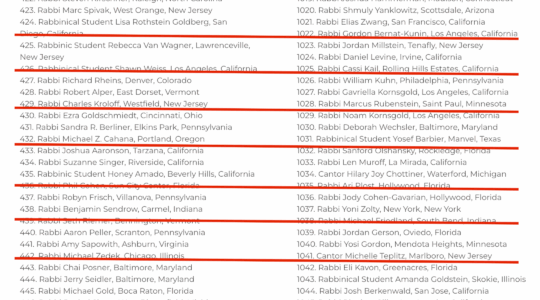WASHINGTON (JTA) — A former ambassador to Saudi Arabia with a history as a critic of Israel reportedly will be named to a top intelligence post in the Obama administration.
ForeignPolicy.com reported Thursday that Chas W. Freeman Jr., who served as U.S. ambassador to the Saudi kingdom from 1989-1992 and is currently the president of the Middle East Policy Council, will be the chairman of the National Intelligence Council, which plays the leading role in producing national intelligence estimates. The publication reported Freeman has told associates that in the role, he would occasionally accompany director of national intelligence Adm. Dennis Blair to give the president his daily intelligence briefing.
In 2005 remarks to the National Council on U.S.-Arab Relations, Freeman said that "as long as the United States continues unconditionally to provide the subsidies and political protection that make the Israeli occupation and the high-handed and self-defeating policies it engenders possible, there is little, if any, reason to hope that anything resembling the former peace process can be resurrected. Israeli occupation and settlement of Arab lands is inherently violent."
He added, "And as long as such Israeli violence against Palestinians continues, it is utterly unrealistic to expect that Palestinians will stand down from violent resistance and retaliation against Israelis. Mr. Sharon is far from a stupid man; he understands this. So, when he sets the complete absence of Palestinian violence as a precondition for implementing the road map or any other negotiating process, he is deliberately setting a precondition he knows can never be met."
In 2008, in a speech to the Massachusetts Institute of Technology Security Studies Program, he said, "We have reflexively supported the efforts of a series of right-wing Israeli governments to undo the Oslo accords and to pacify the Palestinians rather than make peace with them.
"The so-called ‘two-state solution’ is widely seen in the region as too late and too little. Too late, because so much land has been colonized by Israel that there is not enough left for a viable Palestinian state alongside Israel; too little, because what is on offer looks to Palestinians more like an Indian reservation than a country."
JTA has documented Jewish history in real-time for over a century. Keep our journalism strong by joining us in supporting independent, award-winning reporting.





